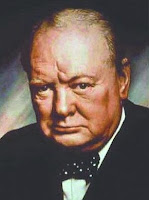Much like the NAACP maintains the archaic and politically incorrect term "colored people"to perpetuate its well-established brand, the Public Relations Society of America will likely maintain the term "public relations" long after the phrase has gone out of favor.
In a world of 24-hour connectivity where journalists are scooping their own news organizations through Twitter and traditionally conservative businesses like Ernst & Young have Facebook pages, PRSA's definition that public relations "helps an organization and its publics adapt mutually to each other" asks more questions than it answers.
But PRSA is not alone in its failure to adequately explain what public relations is. Entrepreneur.com defines it as "Using the news or business press to carry positive stories about your company or your products; cultivating a good relationship with local press representatives," but there's so much wrong with that definition, it's difficult to know where to begin.
 Personally, I'd ditch the term "public relations" altogether, since it evokes the 1997 film "Wag the Dog," where, according to IMDB.com, "a spin-doctor and a Hollywood producer join efforts to 'fabricate' a war in order to cover-up a presidential sex scandal."
Personally, I'd ditch the term "public relations" altogether, since it evokes the 1997 film "Wag the Dog," where, according to IMDB.com, "a spin-doctor and a Hollywood producer join efforts to 'fabricate' a war in order to cover-up a presidential sex scandal." Public relations involves much more than relations with the "public" but rather with a host of other stakeholders, including shareholders, customers, suppliers, media and competitors. In my seven years at a PR agency, my duties included media relations, internal communications, government relations and marketing, to name only a few. I think the term "marketing communications" more broadly captures what PR professionals actually do in 2012.
Using PRSA's own template for its "Public Relations Defined" initiative, here's my idea:
"Public relations Marketing communications creates and/or maintains a positive image for an internal/external client in order to accomplish its business goals."
This definition should be seen as a mission statement - short, precise description of what will be done and why. Since much of my leadership training comes from the military, I have learned that a mission is a "task" and a "purpose." In the private sector I've seen far too much confusion in the business world caused by those who believe a mission statement must include the "hows" instead of just the "what" and the "why."
There is certainly a time and place to list the "hows," but not in the mission statement. It's in the planning. This is true on the battlefield and in the boardroom.
Part of the planning process includes ethics, but the PRSA's code of ethics would complement my definition and, in my opinion, wouldn't need to be changed and are clearly stated:
Each example listed by PRSA Chair/CEO Gerard Corbett violates at least one of the above-listed principles, but the Google example stands out as the most dangerous because it runs afoul of the goals of promoting "healthy and fair competition among professionals" and fostering "informed decision making through open communication."
Any "whispering campaign" cannot possibly be categorized as "open communication," particularly if it's undertaken by a PR professional on behalf of a client. If Burson-Marsteller had created a campaign to highlight the privacy-protecting aspects of its client (which might indirectly address some privacy concerns about Google's "Social Circle"), that would have been seen as clever PR work. Instead, Burson-Marsteller executives quietly pitched ideas about the dangers of Social Circle to select media outlets on behalf of an unnamed client and there's nothing "fair" or "open" about that.
I fully support promoting and enforcing ethical standards in my industry and I applaud PRSA's ongoing efforts. Professional organizations like the American Bar Association have a long track record of policing their members and upholding ethical standards and any increased government involvement is unnecessary. There are legal remedies, both criminal and civil, against fraud and other violations that might occur when unethical PR practices take place.
Political pundit George Will once observed "World War II was the last government program that really worked" and I'd be willing to bet that a Washington bureaucracy enforcing ethics in the public relations field would do little to change Will's mind.














